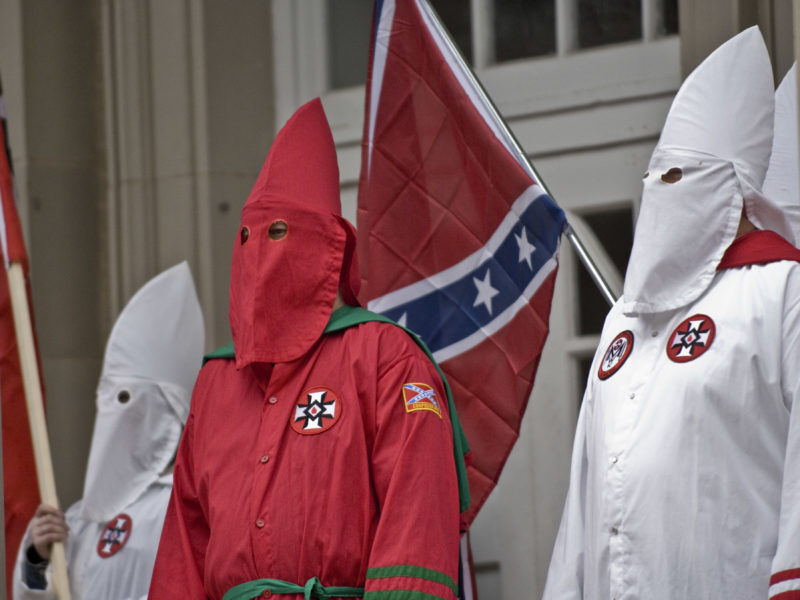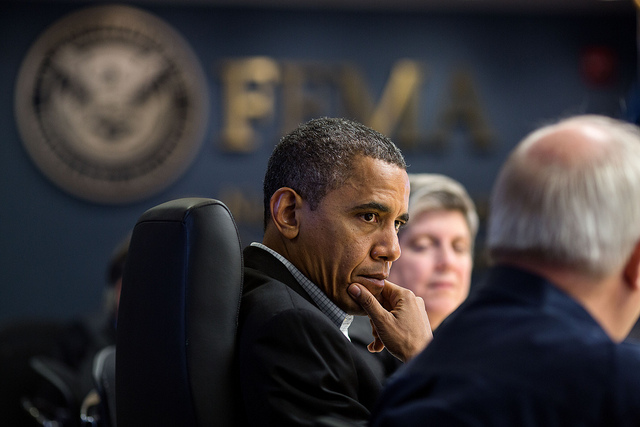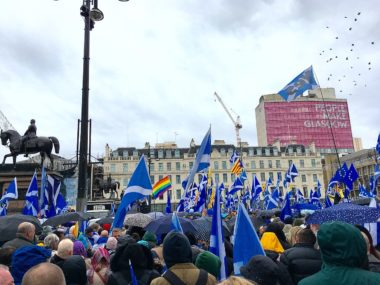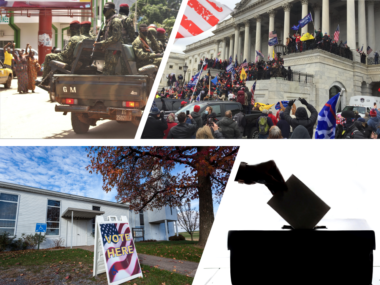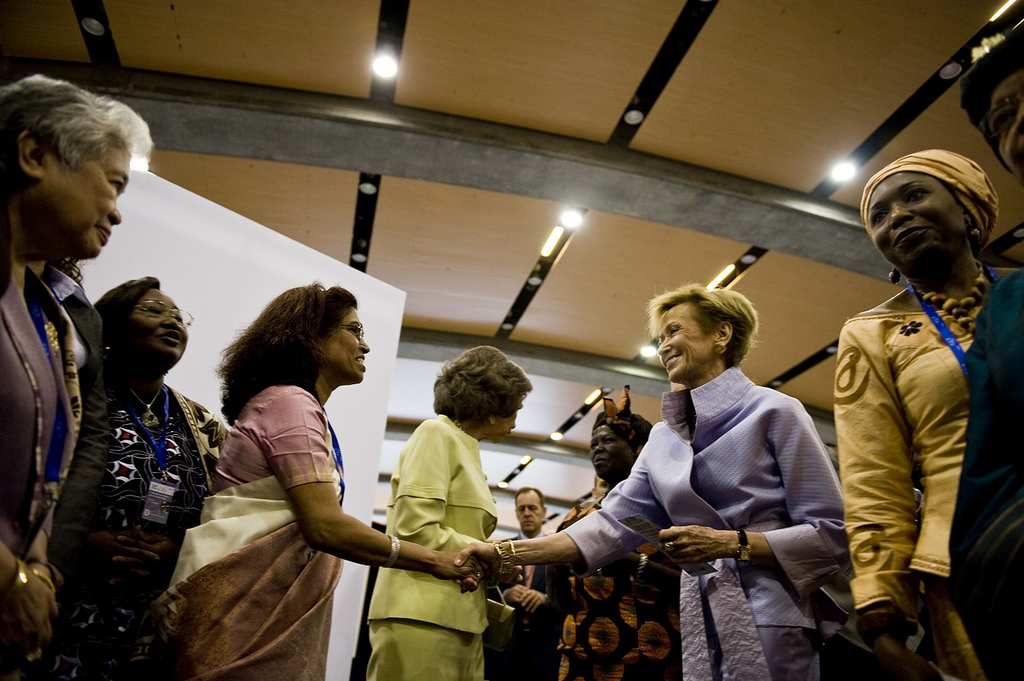Over the past few months, headlines have indicated that leaders of two major armed groups with very different ideologies and from very different contexts—the Taliban and the Klu Klux Klan (KKK)—have endorsed President Trump in the 2020 elections. David Duke, the founder of the Knights of the KKK, endorsed the president on Twitter in July 2020, before he was banned from the platform; and a senior Taliban leader also reportedly endorsed the president, claiming the hope that a Trump administration will withdraw troops from Afghanistan.
Why would these organizations consider endorsing President Trump, and does support from armed groups help or hurt the president?
Armed group endorsement of political candidates is not new. My recent work with Paul Staniland shows that armed groups are often involved in electoral politics, and politicians are at times tied to armed groups. From the KKK’s efforts to both support and take aim at candidates in the 1920s US, to recent insurgencies in Sri Lanka and paramilitaries in Colombia that have targeted political parties with which they disagree, many armed groups—we suspect most armed groups—seek to influence the outcome of elections through some type of electoral participation. They do so because elections fundamentally shape politics and power in most countries in the modern era. Conversely, some politicians actively seek the involvement of armed groups in order to advance their agendas and improve their chances of winning—even if they sometimes refrain from making these links clear.
Relationships between armed groups and political candidates take different forms. Some armed groups participate in electoral politics by establishing overt ties with politicians—think supportive public statements—or by providing support in the form of the armed group’s platform, resources, or even violent capacity, for a political party or candidate. Others establish covert ties, which are identified based on a clear pattern of group behavior, widespread beliefs, or evidence of coordination that emerges only after an election. Armed groups can also participate more directly in elections, when, for example, political candidates emerge from armed groups themselves. There are also forms of participation in which armed groups indiscriminately target the process as a component of their military campaign against the state as a whole.
Armed groups rarely ignore elections. In fact, systematically collected data on even just the most obvious kinds of support—overt and direct participation—show that repeated participation in elections is commonplace.
There are real benefits to these relationships for political candidates and armed groups themselves. For example, armed groups are often composed of deeply motivated individuals who may be easy to mobilize for legal and extralegal forms of engagement. The groups can, in these instances, potentially turn their members and broader supporters out at the polls. They can also intimidate others not to turn out.
But there are potential downsides to armed group electoral participation, too, especially for politicians, even if the actors are aligned on some dimensions. For instance, the possibility of a backlash by particular supporters or active resistance by other communities, as well as the potential for punishment under the formal laws of the state, may at times outweigh the benefits of support from armed groups.
There are ways for politicians and their political parties to glean the value of armed group support while mitigating the downsides. For example, if an incumbent controls judicial or policing institutions, the most serious consequences, such a punishment under the formal laws of the state for instigating violence, can be mitigated. Politicians may also use other strategies to try to dodge negative effects. For example, in the case of the Taliban, the Trump administration rejected their endorsement, easing potential ramifications. Trump’s obfuscation in the face of endorsements from far-right armed groups, perhaps intended to ease the backlash, however, has shown little sign of actually doing so.
Overt endorsements of Trump by KKK and Taliban leaders may be shocking to some, but looking at experiences in other countries and contexts provides further warning. Based on evidence from other countries where armed groups support politicians along similar lines, it would not be surprising to see other related actions from armed groups, including, most disturbingly, the targeting of opposing politicians and parties—as happened in Michigan where extremists plotted to kidnap the governor.
Even when politicians seek to distance themselves, or even reject, overt endorsements by armed groups—like Trump ostensibly has, these endorsements can signal durable ties that should provide a warning. Most starkly, based on our case studies, we should be concerned that armed groups that overtly endorse politicians may also continue to target their opponents, including with violence.

